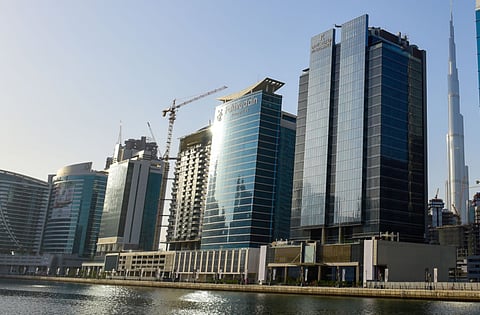Dubai’s holiday homes need a rules reset
DTCM must clearly set out responsibilities of all stakeholders, including penalties

By Tomas Dolezal and Vinayak Mahtani, Special to Gulf News
The holiday homes industry in Dubai was launched in 2013 by the issuing of Decree No. (41) of 2013 by his Highness Mohammed bin Rashid Al Maktoum, Vice-President and Prime Minister of UAE and Ruler of Dubai. This was further substantiated by executive resolutions issued by DTCM (Dubai Tourism & Commerce Marketing) in 2015 and 2016, which clearly defined the rules governing the industry for all players - being the holiday home operators, homeowners, developers, guests and the DTCM.
Among the reasons for allowing holiday homes in Dubai are its vast positive externalities on the economy due to ability to attract more tourists, which would result in higher rental yields for homeowners, higher retail spend, and higher spend on F&B services etc., thereby helping the economy achieve its goal to further diversify and to further increase the GDP share from tourism.
The positive externalities and clear-cut regulations were key drivers for the fast growth of the holiday home industry in Dubai and, in 2019, the growth trend continued. However, it should be also noted that there are also negative externalities caused by the holiday homes, the main one being the occasional nuisance caused by guests who are not following the rules set by holiday home operators and disturbing their neighbors.
The growth of holiday homes in the city made this negative externality more apparent, and more complains were registered to be facility management firms managing the communities.
Resolved through talks
This situation should have resulted in a debate between the facility management firms/developers and the holiday home operators on how to minimize the nuisance. The debate would conclude by defining an operating model defining clear responsibilities between all involved parties and how these parties would interact.
This should have been the way the negative externality could be turned into a positive one; for instance by setting up a community fund into which penalties charged on guests for breaking the rules would be transferred and affected neighbours duly compensated from it.
Developers crack the whip
Unfortunately, because the current holiday home regulation does not explicitly stipulate penalties to be handed over to facility management firms/developers, the developers went the other way - and even when prohibited by the law - they try to ban holiday homes from operating in their premises. (For instance, a ban was imposed by Emaar Community Management [ECM] in September 2019).
ECM’s ban on holiday homes obviously resulted in the authorities intervening and enforcing the law. However, even after the intervention of the UAE Supreme Legislative Committee, which confirmed that holiday homes cannot be stopped by a developer, the developers actively seek ways to do so.
As an example, Emaar Community Management recently instructed its security to stop guests of DTCM authorized holiday homes unless the holiday home operators sign a document developed by Emaar Community Management. This is again a direct breach of the law (executive resolution 1/2016 point 2.1.3. issued by DTCM).
Regulator influence
The DTCM is actively intervening and enforcing the law onsite, saving the holidays of tourists in Dubai, confirming that holiday homes do not have to sign any document developed by a private entity to operate. However, unfortunately, the occurrences of the stopped guests are too many as of now. The situation is unsustainable. A permanent resolution must be found very soon.
The permanent resolution of the current status quo would happen if an update to the current holiday homes regulation would be issued by DTCM, further detailing the current operating model for the industry’s stakeholders and also stipulate penalties on the developer for breaching the law. (The current regulation has stipulated penalties against holiday homes operators for breaches).
Such detailing of the regulation would explicitly define the responsibilities of each party and make sure the law is obeyed, thus improving the cooperation and improving the harmony in the communities.
To conclude, the holiday home industry in Dubai is flourishing, however it urgently needs DTCM to detail the operating model for all key stakeholders and to ensure that developers/facility management firms obey it, to preserve its momentum. Once done, the industry is set for a long-term success.
Tomas Dolezal is CEO of Elite Royal Apartments, while Vinayak Mahtani is founder of bnbme.



